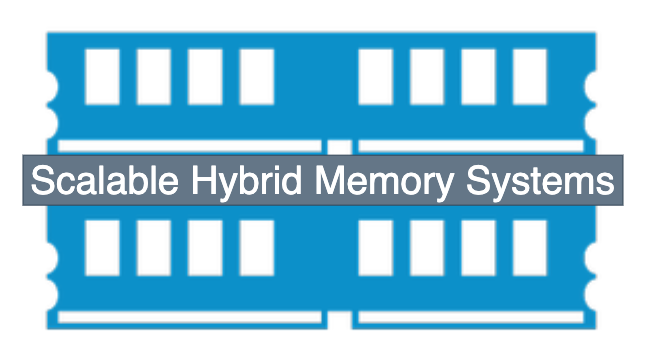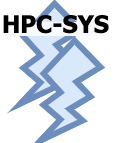-

High-Performance Big Data and AI
Managing and processing large volumes of data, or Big Data, and gaining meaningful insights is a significant challenge facing the parallel and distributed computing community. This has significant impact in a wide range of domains including health care, bio-medical research, Internet search, finance and business informatics, and scientific computing. Designing and building high-performance Big Data and AI systems are of significant importance to both research communities and industry.
-

Hot Networking Technologies
As the networking technologies continue to evolve in High-End Computing (HEC) platforms, it becomes increasingly essential and challenging to understand, design, and develop efficient communication protocols and in-network computing schemes for time-critical High-Performance Computing (HPC) , Big Data, AI, and Cloud applications. PADSYS Lab's research on this direction will play significant impact on enabling optimizations of HPC, Big Data, AI, and Cloud applications that run on top of high-performance interconnects.
-

Scalable Hybrid Memory Systems
The modern memory and storage architectures and technologies have been evolving rapidly in these years. More and more advanced features, such as persistent memory (PMEM), NVM Express (NVMe) based SSDs, have been made available to the community. These emerging hardware devices and the associated features open up a lot of new research opportunities for HPC, Big Data, AI, and Cloud Computing systems and applications.
-

HPC Systems and Libraries
High-Performance Computing (HPC) systems and libraries have been playing a critical role for science discovery over the last decades. Recent years, HPC technologies have been heavily used by machine learning and deep learning applications. Advances in HPC systems and libraries are enabling researchers to solve bigger and harder problems.
-

Cloud Computing and Virtualization
Cloud Computing may be the most flamboyant technological innovation over the last two decades. Nowadays, Cloud Computing technologies have been widely adopted into the mainstream than any other technology in the community. However, current-generation Cloud Computing platforms with hypervisor and container enabled virtualization still have a lot of issues on not only performance, energy efficiency, but also other aspects.